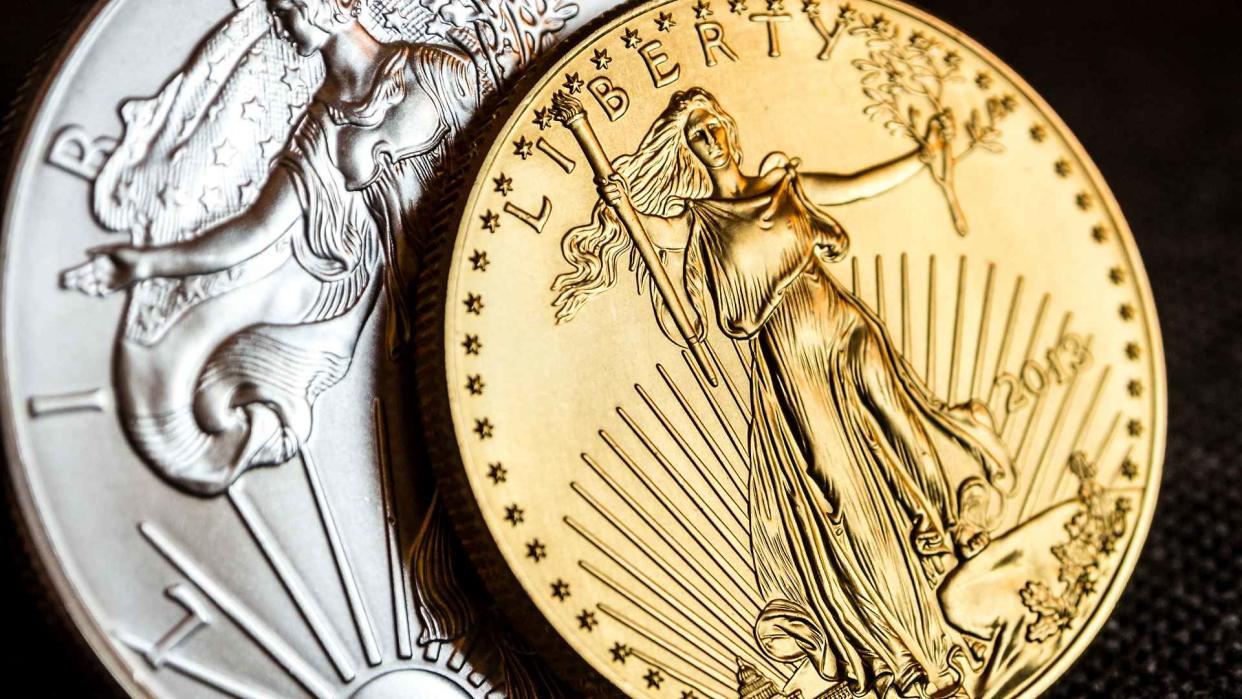Where To Buy Gold and Silver Coins or Bars: Red Flags To Watch For

Although coin collecting is intended to be a fun, interesting and potentially lucrative hobby, it’s also a big business — and like any form of trade, there’s always someone out there who’ll try to scam you. A recent report from Transparency Market Research estimated the value of the global coin collection market at $8.7 billion in 2022 and projected that it could surpass $20 billion by 2031.
See: $2,000 Quarter? Check Your Pockets Before You Use This 2004 Coin
Find: 10 American Coins That Were Once Worth Thousands and Are Now Worth Nothing
With all that money at stake, you can be sure that scammers and shady dealers are already figuring out new ways to bilk you out of your money. Thousands of consumers fall victim to rare coin investment schemes every year, according to the Florida Attorney General’s office, and it’s “not uncommon” for individual victims of coin scams to lose more than $100,000 in a single transaction.
Amateur coin collectors are especially vulnerable to scams because they lack the expertise to determine whether the coin being sold or promoted is legitimate. In fact, as the Florida Attorney General’s office noted, few consumers ever profit from investing in rare coins because they “do not know enough information” to make smart investment decisions.
Your chances of being scammed increase when you are dealing in gold and silver coins or bars because those precious metals hold so much potential value — and scam artists know it.
What To Do Before Buying Your First Gold or Silver Coin (or Bar)
Before making a purchase, the American Numismatic Association recommends doing your research. You can begin by studying as many different examples of the coin you are interested in as possible — and then examining how they’re graded. For help, consult a reference book such as the official “Red Book” guide that can give you a wealth of information about coins, values and conditions. You should also research recent auction prices for particular coins to get an idea of how much you should expect to spend.
When buying gold, be wary of any dealer that doesn’t have a physical location, according to Consumer Affairs. Its recommendation is to “avoid Craigslist, online dealers offering massive discounts, pawnshops, TV ads, cold callers and any dealer without a brick-and-mortar location, since there’s no way of verifying that the dealer actually exists.”
Regardless of where or how you buy gold or silver coins or bars, here are six red flags to look out for.
Items in the showcase are not priced: This could be a sign that the dealer will size you up to see how much you know about coins and then jack the price up if you don’t show much knowledge.
Prices are not what they should be: If you see a dealer whose prices are not in line with the competition, it’s a red flag. If prices are well below the norm, chances are the items are not legitimate. If they are well above the norm, then you should look elsewhere.
The dealer offers free storage or delayed delivery: This is a sign that they might not be legitimate, according to Consumer Affairs.
You are offered a limited time discount: Legitimate dealers don’t typically offer deep discounts on rare and valuable coins.
It’s hard to find a dealer’s contact info: Legitimate coin dealers make it easy for you to find and contact them because that’s the best way to ensure more business. In contrast, the last thing scammers want is for you or law enforcement to be able to knock on their door one day.
They are unable to answer your questions: Legitimate coin, silver and gold dealers have a deep well of knowledge about what they are selling. Those that don’t are probably not legit.
More From GOBankingRates
This article originally appeared on GOBankingRates.com: Where To Buy Gold and Silver Coins or Bars: Red Flags To Watch For
